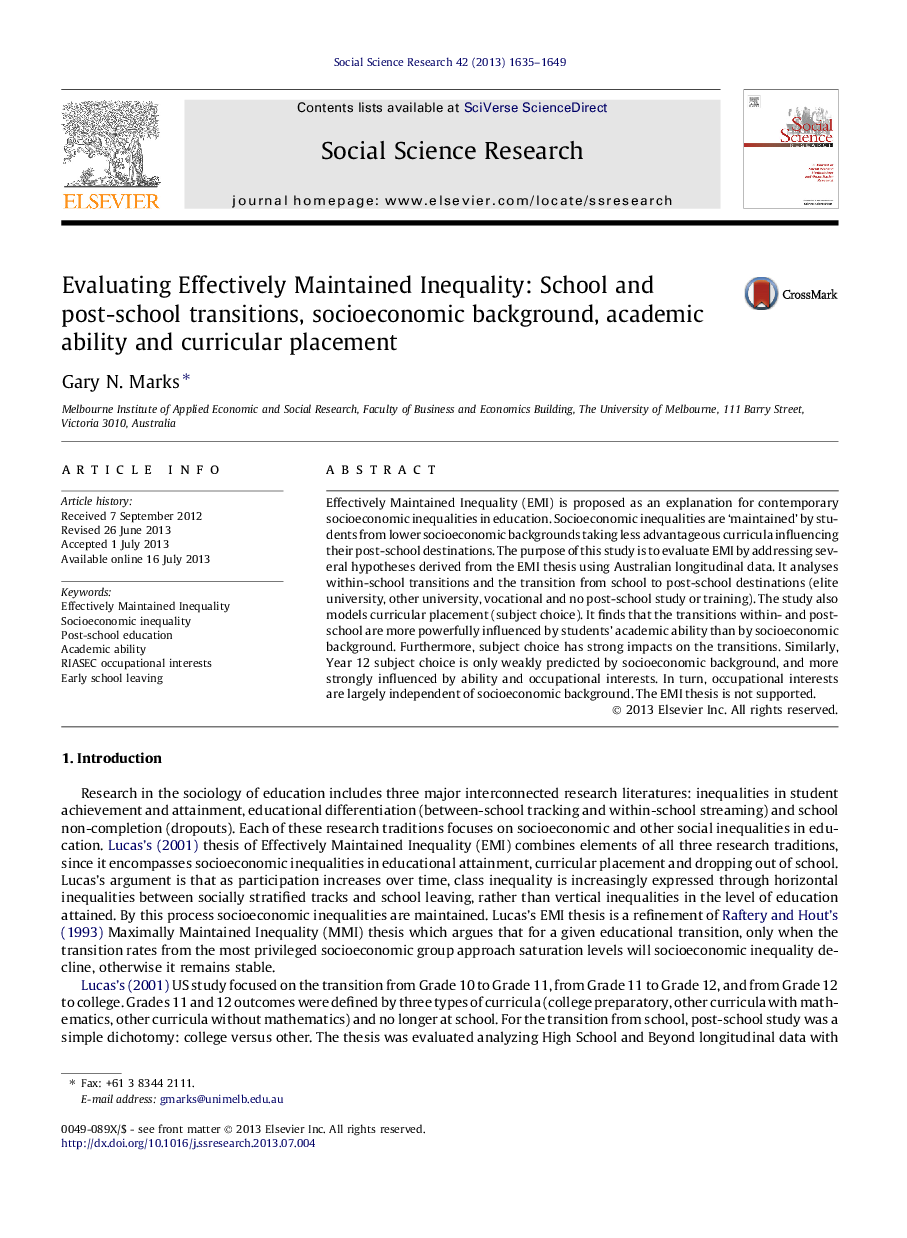| Article ID | Journal | Published Year | Pages | File Type |
|---|---|---|---|---|
| 955994 | Social Science Research | 2013 | 15 Pages |
•Analyzes within-school transitions the transition from school to post-school destinations.•Examines the impact of socioeconomic background, ability and vocational interests.•Student ability has a much stronger impact than socioeconomic background.•Year 12 curricula have strong impacts on post-school destinations, largely independent of socioeconomic background.•Students’ curricula in Year 12 have more to do with ability and interests than socioeconomic background.
Effectively Maintained Inequality (EMI) is proposed as an explanation for contemporary socioeconomic inequalities in education. Socioeconomic inequalities are ‘maintained’ by students from lower socioeconomic backgrounds taking less advantageous curricula influencing their post-school destinations. The purpose of this study is to evaluate EMI by addressing several hypotheses derived from the EMI thesis using Australian longitudinal data. It analyses within-school transitions and the transition from school to post-school destinations (elite university, other university, vocational and no post-school study or training). The study also models curricular placement (subject choice). It finds that the transitions within- and post-school are more powerfully influenced by students’ academic ability than by socioeconomic background. Furthermore, subject choice has strong impacts on the transitions. Similarly, Year 12 subject choice is only weakly predicted by socioeconomic background, and more strongly influenced by ability and occupational interests. In turn, occupational interests are largely independent of socioeconomic background. The EMI thesis is not supported.
